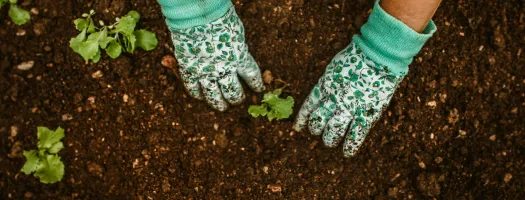Prisons are often left out of sustainability conversations, yet they represent a unique opportunity to drive environmental change. With their high resource consumption and closed-loop systems, correctional facilities can serve as models for innovative sustainability practices.
On Wednesday, 26 March 2025, UNICRI and Penal Reform International (PRI) will host a pivotal event, “Green Prisons: A Guide to Creating Environmentally Sustainable Prisons,” at the Vienna International Centre (Room VIC-C CR2) and online. This session will introduce a groundbreaking report exploring how sustainability can be embedded in prison settings while enhancing rehabilitation efforts.
Why it matters
Climate change and environmental instability amplify vulnerabilities within prison systems, affecting the health and well-being of those living and working in them. Yet, prisons can also be part of the solution. By implementing sustainable practices, they can not only reduce their ecological footprint but also contribute to broader societal goals.
Speaking about the new report that will be presented during the event, Leif Villadsen, Acting Director of UNICRI, highlighted the urgency of addressing sustainability in correctional facilities: “Prisons are often overlooked in environmental discussions despite their significant ecological footprints. This research seeks to address challenges such as the limited opportunities for correctional facilities to adopt environmentally sustainable practices. Its objectives include promoting sustainable environmental practices within prisons and enhancing rehabilitation opportunities, thereby supporting broader social and ecological benefits.”
The event will showcase global case studies and practical recommendations that align with the Sustainable Development Goals (SDGs). Representatives from UNICRI, PRI, and countries implementing Green Prisons strategies will discuss how prisons can integrate energy efficiency projects, self-sufficiency initiatives, and circular economy strategies.
Beyond reducing environmental harm, sustainability projects in prisons offer tangible benefits for rehabilitation. By involving detainees in environmental initiatives, prisons foster personal responsibility, community engagement, and skills development - helping people in prison prepare for reintegration into society as active contributors to sustainability efforts.
Moving forward
As authorities work towards greener prisons, they must also address the urgent need to reduce prison populations and improve detention conditions. Sustainability should go hand-in-hand with broader justice reforms that limit excessive reliance on imprisonment and uphold international human rights standards.
This event will not only highlight the challenges but also showcase the transformative potential of sustainable prison management. By acting now, we can create more humane, cost-effective, and environmentally responsible correctional systems that benefit individuals and society as a whole.
To register: https://forms.gle/3sK7tvRG2Xn4t4jo8
